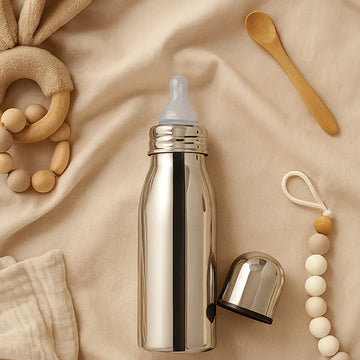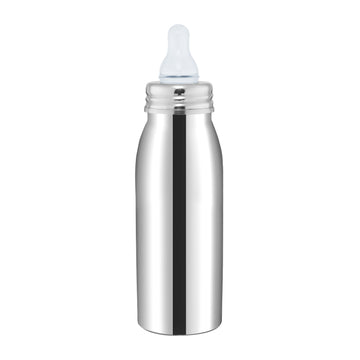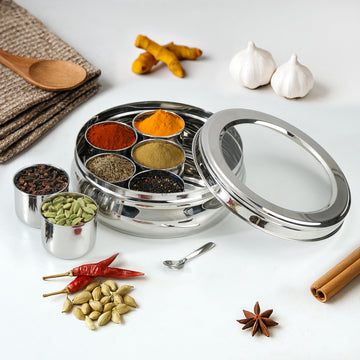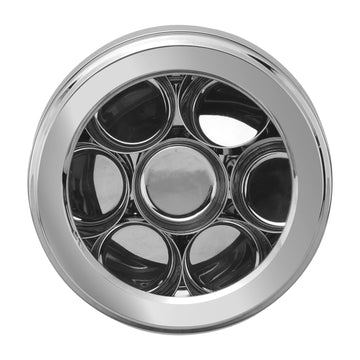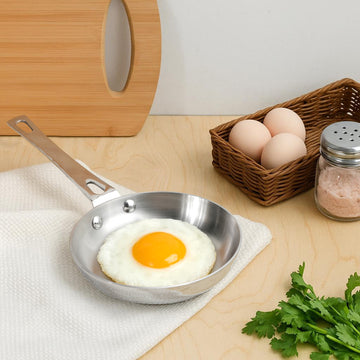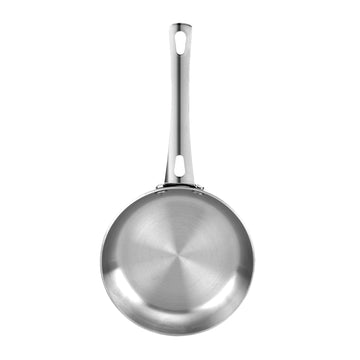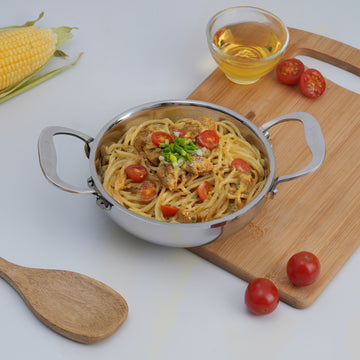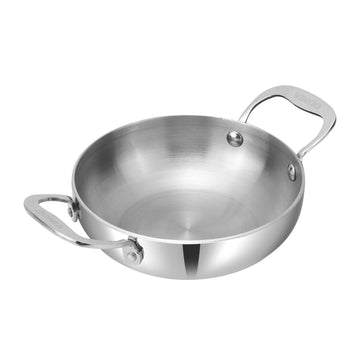7 Tips for Preventing Accidents in the Kitchen.
 The kitchen is the heart of any home, but it can also be a dangerous place if you're not careful. While cooking can be enjoyable and rewarding experience, it can turn into a dangerous thing if the necessary precautions are not taken. With hot surfaces, sharp knives, and boiling liquids, it's no wonder that a kitchen can be a room full of potential hazards.
The kitchen is the heart of any home, but it can also be a dangerous place if you're not careful. While cooking can be enjoyable and rewarding experience, it can turn into a dangerous thing if the necessary precautions are not taken. With hot surfaces, sharp knives, and boiling liquids, it's no wonder that a kitchen can be a room full of potential hazards.
Here are some essential cookware and kitchen safety tips to prevent accidents and injuries in the kitchen:
- Choose the Right Cookware:
The first step in kitchen safety is to make sure you're using the right cookware for the job. When selecting cookware, look for sturdy, heat-resistant materials like stainless steel, cast iron, or ceramic. Avoid non-stick cookware from unknown brands because the coatings can potentially release toxic fumes when overheated. Also, make sure the cookware you choose is the right size for your stove and that the handles are securely attached.
- Keep a Clean and Organized Kitchen
A clean and organized kitchen is a safe kitchen. Keep your countertops free of clutter, and make sure all of your cooking utensils are within easy reach. Avoid leaving dirty dishes in the sink or on the countertop, as they can create a breeding ground for bacteria. Regularly clean your kitchen appliances, including your stove, oven, and microwave. You can find some quick and easy kitchen organising tips here.
- Use Sharp Knives Safely
Sharp knives are essential tools in the kitchen, but they can also be dangerous if not used properly. Never leave knives in the sink, as they can become hidden and cause injury when someone reaches into the sink. When storing knives, keep them in a designated knife block or magnetic strip. Always use knives carefully and keep them sharp. Dull knives can easily slip and cause cuts.
- Keep Kids and Pets Safe
If you have kids or pets, it's important to take extra precautions in the kitchen. Keep them away from hot surfaces and sharp objects, away from the stove and other cooking areas to avoid accidents and injuries. Use safety latches on cabinets and drawers to keep hazardous items like cleaning supplies and knives out of reach. Make sure that all electrical cords and appliances are properly secured and out of reach. While this may be a lot difficult since children are curious by nature, it is best to teach them about kitchen safety from a young age.
- Follow Food Safety Guidelines
Food safety is an essential part of kitchen safety. Always wash your hands before and after handling food, and make sure that all food is cooked to the appropriate temperature. Use separate cutting boards for meat and vegetables to avoid cross-contamination. Store food properly in the refrigerator or freezer, and throw away any food that has gone bad.
- Practice Safe Cooking Habits
When cooking, be mindful of safe cooking habits. Never leave the stove unattended while cooking, this can lead to food burning and potentially cause a fire. If you have to absolutely leave the stove unattended, then use a timer to remind you when food is finished cooking, and turn off burners when not in use. Keep flammable items like paper towels and oven mitts away from the stove to avoid accidental fires. When using the oven, always use oven mitts to protect your hands from burns.
- Protect Yourself from Burns
Burns is one of the most common kitchen injuries, but they can be prevented with a few simple steps:
- Avoid overcrowding the cookware, particularly a frying pan or pot, with too much food as it can lead to oil spilling over, causing burns.
- When cooking on the stove, use long-handled utensils to keep your hands away from hot surfaces.
- Turn the pot and pan handles inward so that they don't stick out over the edge of the stove or counter. This will help prevent hot food from getting accidentally knocked and spilled.
- Never attempt to grab hot pots or pans with bare hands, instead use oven mitts or pot holders.
If you do get burned, run the affected area under cool water for at least 20 minutes, and seek medical attention if necessary.
In conclusion, following these cookware and kitchen safety tips can help prevent accidents and injuries in the kitchen. By taking the necessary precautions, you can make your time in the kitchen a safe and enjoyable experience. Remember, a little caution goes a long way.


